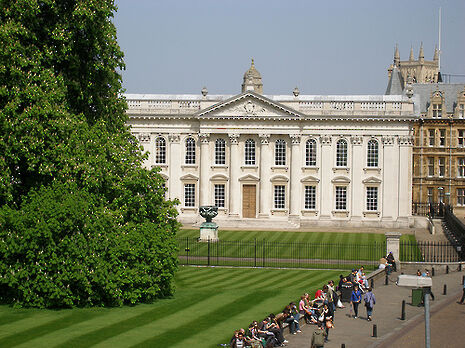Cambridge joins Oxford in seeking ‘no confidence’ motion against Universities Minister
As Cambridge academics unite against tuition fee hikes, Varsity investigates whether students agree

Almost 150 senior academics have signed a grace expressing their opposition to government policies proposed by Universities Minister David Willetts.
As it stands, government cuts will almost treble student tuition fees, drastically reduce teaching budgets, and impinge on the University’s system of self-government.
The move follows action taken by Oxford academics earlier this month against the government’s higher education reforms.
If the motion secures the formal support of the University’s ruling council next month, it would the first time that an English university has given a vote of ‘no confidence’ in a minister.
Dons have criticised state intervention in admissions policies, believing that the government is falsely associating high-ranking universities with social elitism that discourages less privileged prospective applicants.
One of the academics involved is Ben Etherington, a research fellow in the English Faculty. He shared his concerns with Varsity that the "restructuring of universities" on a market model will result in education's purpose becoming "external to itself".
“Students will be forced to think about their future careers in instrumental terms right at the beginning.
“This will lead to a renewed economic segregation, particularly in the humanities, where only those who do not flinch at the costs will be happy to spend three years discussing Chaucer and Wittgenstein".
Seb Barfoot, who is graduating this year, agrees that students could be discouraged from undertaking potentially valuable research due to financial barriers: “The price hike will be a massive deterrent, especially to those wanting to do Masters degrees where there is already limited funding available.”
Concerns that such degrees might only be accessible to students from privileged backgrounds remain paramount.
James Hansen, who has an offer to read English at Cambridge next year, is sceptical about the impact Government proposals might have on University admissions procedures: “I can be sure that, had I been applying this year, I would have gone for it anyway, but I know of others in the same position who would have had their undoubted potential discouraged by the cost.”
Christina Jennings, a first year Natural Sciences student, showed similar anxieties: “I was in two minds about coming to university because of the fees involved and if they had been any higher I probably wouldn’t be here”.
However, other students are less certain about the drawbacks of heightened fees.
David McLean, an engineering student, claims, “I think that education should be available to everyone regardless of background or circumstance, but that's not to say that it shouldn't be expensive.
“A degree is a very valuable thing to have, and I don't think it makes any sense to either force everyone to try and get one or to value it so lowly as to give them away for free.
“Instead we should pay the high price that is required to get a degree, and for those whose circumstances would otherwise prohibit them from going to university, we – the general populace and the State – should help financially so that they can benefit.”
Whilst this might offer an idealistic solution to the threats posed by Government proposals, the ‘no confidence’ vote that senior academics are seeking suggests that Cambridge dons are uncertain of its viability.
English student Fred Maynard highlights the impact this move could make if Cambridge does indeed join Oxford in formally opposing the measures:
“With brand names as strong as those of Oxford and Cambridge, they should be the first to welcome this privatisation drive. The fact that they clearly don’t should make ministers seriously pause for thought.”
 Features / Should I stay or should I go? Cambridge students and alumni reflect on how their memories stay with them15 December 2025
Features / Should I stay or should I go? Cambridge students and alumni reflect on how their memories stay with them15 December 2025 News / Cambridge study finds students learn better with notes than AI13 December 2025
News / Cambridge study finds students learn better with notes than AI13 December 2025 Comment / The magic of an eight-week term15 December 2025
Comment / The magic of an eight-week term15 December 2025 News / News In Brief: Michaelmas marriages, monogamous mammals, and messaging manipulation15 December 2025
News / News In Brief: Michaelmas marriages, monogamous mammals, and messaging manipulation15 December 2025 News / Uni Scout and Guide Club affirms trans inclusion 12 December 2025
News / Uni Scout and Guide Club affirms trans inclusion 12 December 2025









